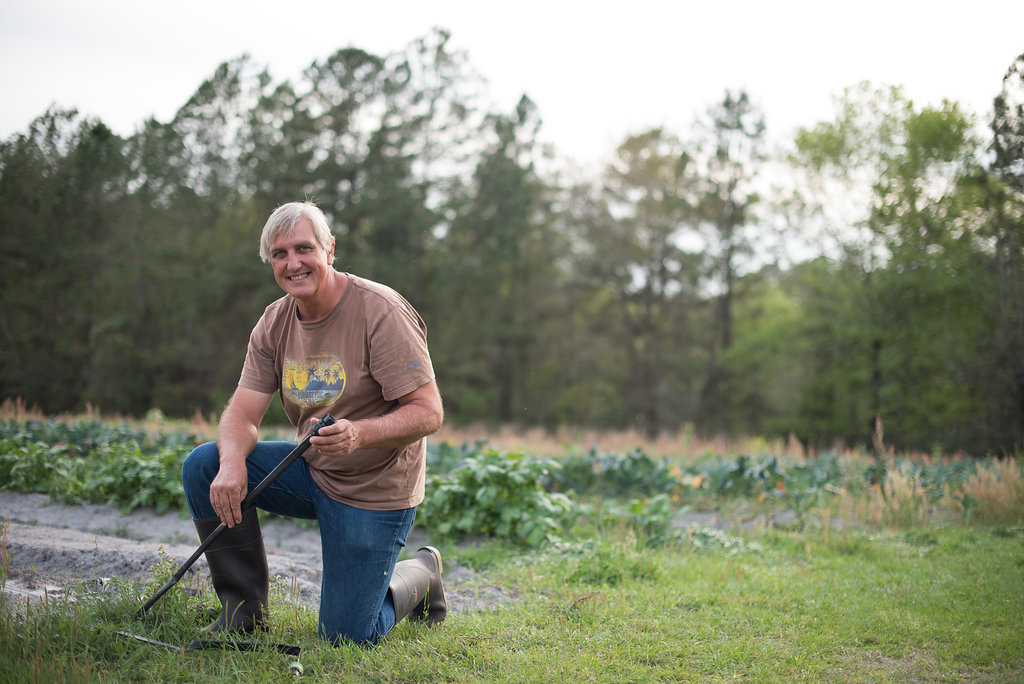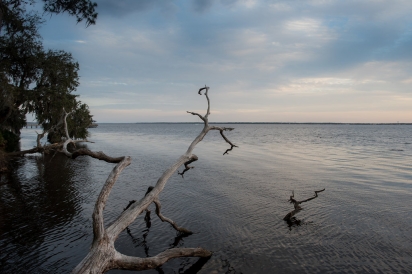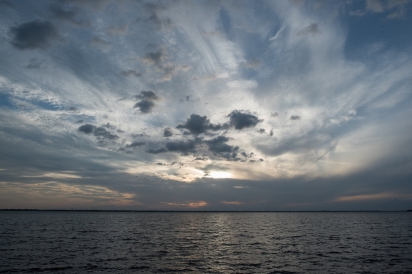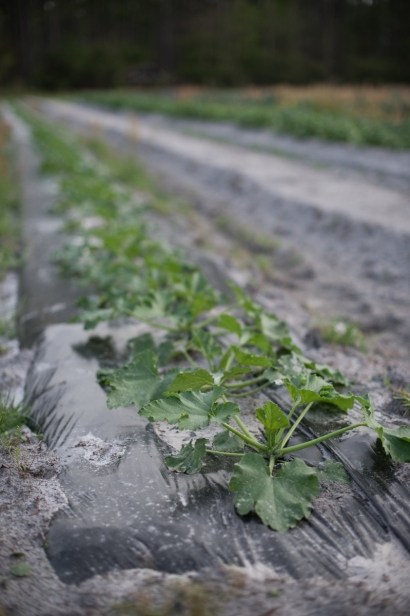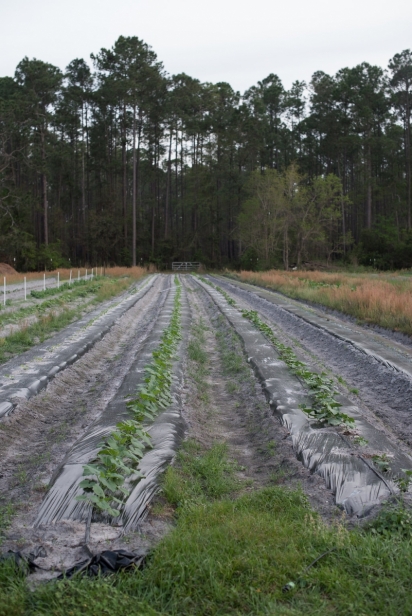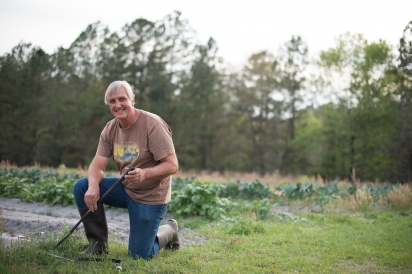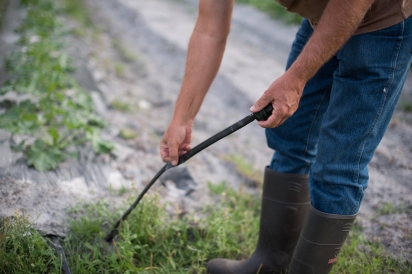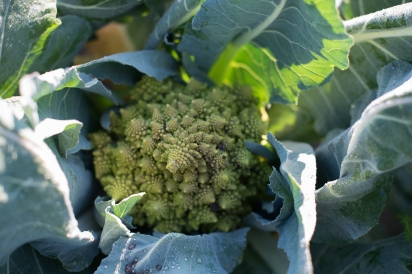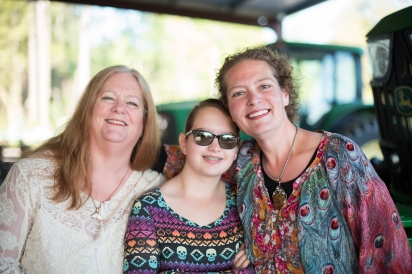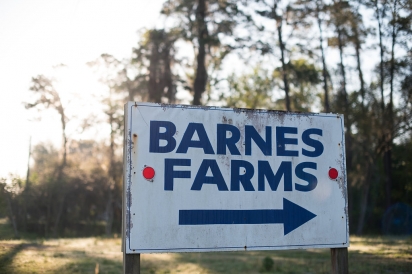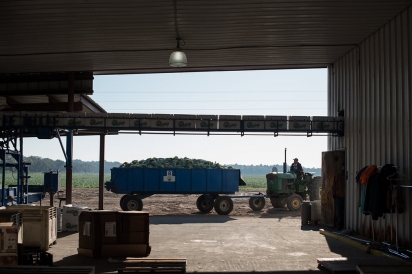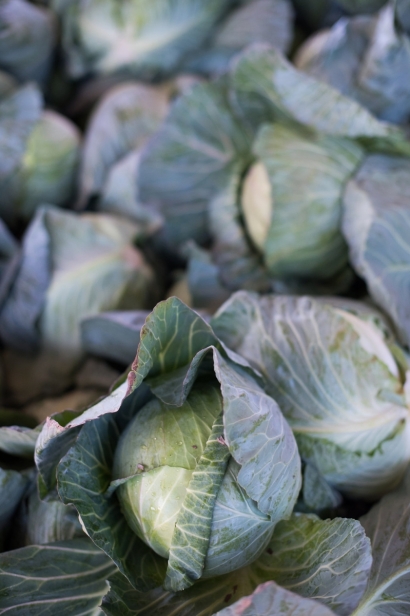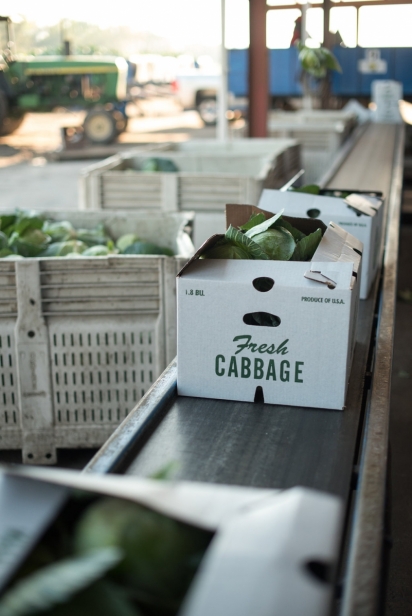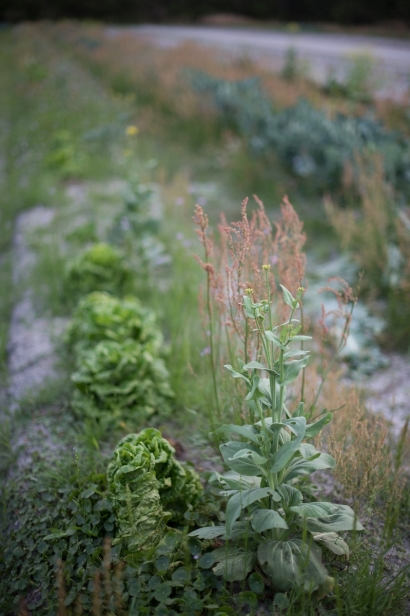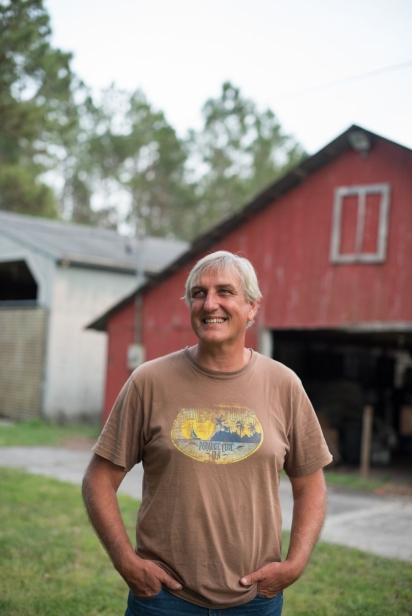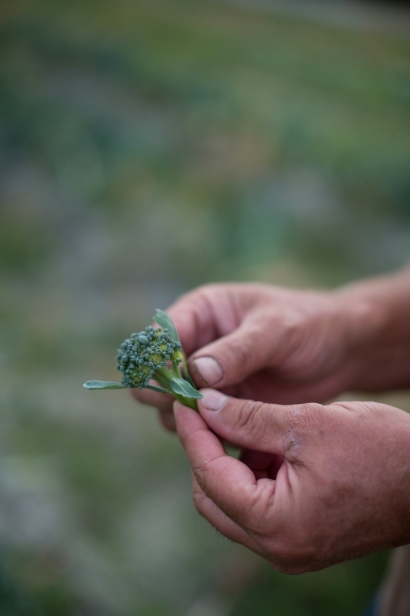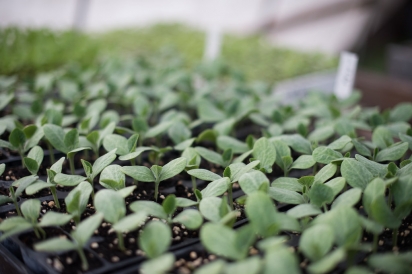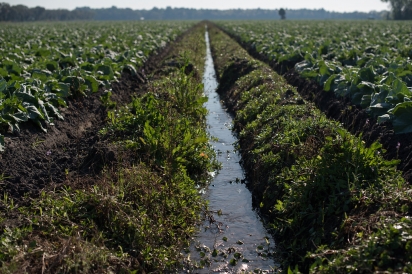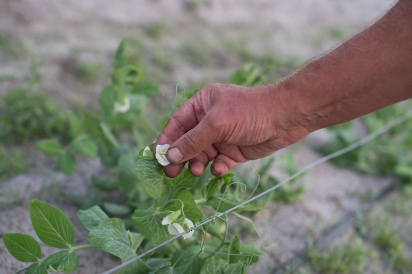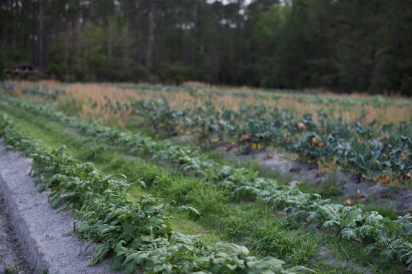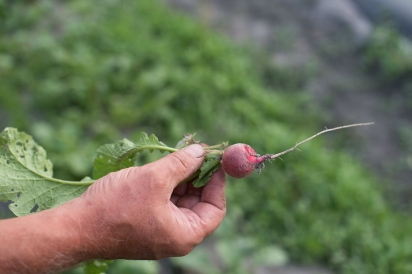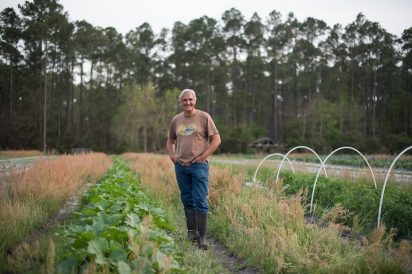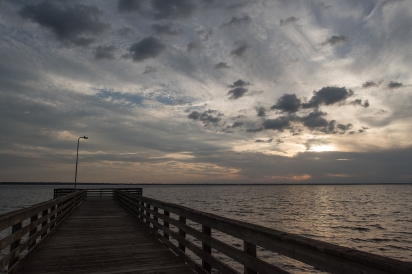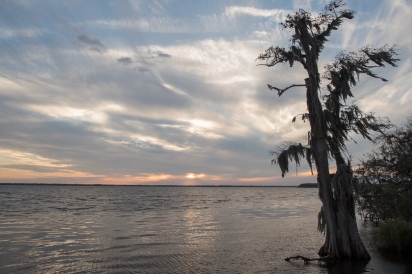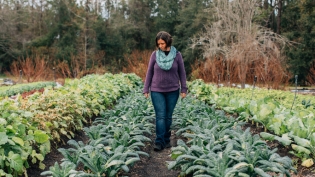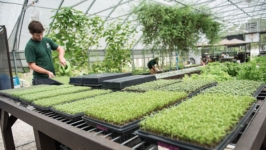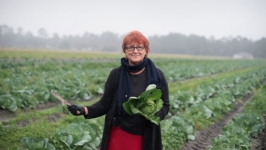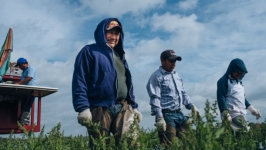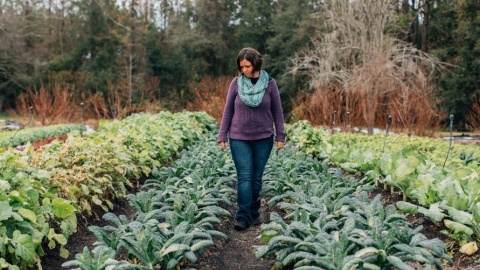A River Runs Through It
Do you take water for granted? In Northeast Florida, it’s easy to do. In the face of inescapable stories from across the nation of the crippling water crisis in Flint, historic drought in California and the fast disappearance of the giant Midwestern Ogallala aquifer, in Northeast Florida it may seem we’re flaunting our abundant supply. Turn on a tap, there’s clean water. Jump in the sparkling ocean after work for a refreshing dip. Get the kids up early for a Sunday jaunt on the river or Intracoastal.
We mustn’t take it for granted, however.
Livestock and crops, of course, need fresh and healthy water to grow. Agriculture worldwide accounts for about 70% of water use. Here at home, agriculture impacts the St. Johns River, its tributaries and the Floridan aquifer. Groundwater from the Floridan aquifer is used for crop irrigation. The lower St. Johns has recently battled algae blooms and other water quality issues. These blooms are caused by excess nutrients from fertilizer, wastewater and stormwater runoff, and coincide with copious sunlight, warm temperatures and shallow, slow-flowing water. There’s also a concern about runoff from fields to surface waters after heavy rains.
Florida’s longest river flows south to north and cleaves a path through Florida’s northeast counties. The Tri-County Agricultural Area (TCAA) includes St. Johns, Putnam and Flagler, and is nestled in the lower St. Johns River basin.
Both farming and urban growth are affecting aquifers nationwide, and the situation is no different in Florida. It should go without saying that population growth contributes to various water issues across the region and state. Nearly 1,000 people move to Florida every day. We have 20 million residents and millions of tourist visits each year as well.
Says Mark Warren, the agriculture extension agent who covers Flagler and Putnam counties, “We have got to learn how to do agricultural production in a commercial way; we’ve just got to do it in a sustainably commercial way.”
Northeast Florida farms large and small are taking control of water challenges on their own and with help. Jody Lee is an environmental manager in the Office of Agricultural Water Policy for the Florida Department of Agriculture. He is based in the St. Johns River Water Management District (SJRWMD) and, among other things, helps growers in the district with cost share program enrollment and Best Management Practice (BMP) programs.
Lee says that even though the St. Johns River is considered an impaired water body, we are “doing better.” Since the river is impaired, working with farmers to reduce nutrients is critical. The main objective of the cost-share program is to assist farmers, growers and ranchers in water conservation and the reduction of nutrient runoff.
“The BMP of conserving soils helps to prevent excesses from entering native waterways as sediment, which in turn adversely impacts water quality, plants and native aquatic wildlife,” says Robert Storm Burks, an environmental scientist and former longtime SJRWMD employee.
“The nutrients from fertilizers (along with pesticides and other compounds) can enter natural waterways, often by being transported along with soil,” he adds.
One way to lessen the nutrients is to get farms to switch from broadcasting fertilizers to using banders. Banders, a more precision-based technology, allow farmers to apply less fertilizer by placing the nutrients directly on the row closer to the seed instead of broadcasting over the entire field. The cost-share program assists with the purchase of banders.
Cost-share programs are funded by several agencies at local, state and national levels. According to Lee, “there are several programs available to assist producers with BMPs and projects that target water quality and water conservation goals. They are funded primarily by SJRWMD, Florida Department of Agriculture & Consumer Services (FDACS), Florida Department of Environmental Protection (FDEP) and US Department of Agriculture/ Natural Resources Conservation Service (USDA/NRCS).”
“There are high salinity levels in some of the irrigation wells used for crops. This is damaging to crops, could be the result of intrusion, and over-pumping could exacerbate the problem,” says Lee. Area growers are looking hard at ways to conserve their water use because if they pump too much, salinity levels may increase. Converting to sub tile irrigation (underground plastic pipes) from other methods can drastically cut water use on farms, and cost-share opportunities are available.
The Barnes family has run Barnes Farm in Hastings for five generations. Virginia Barnes, her brothers and parents currently grow cabbage. During the writing of this article, Barnes Farm was in the throes of the high holy cabbage holiday, St. Patrick’s Day, and a constant stream of semi-trucks carried full loads of cabbage from the farm all over the eastern seaboard.
Barnes says her farm consistently stays under their consumptive water use permits by very carefully monitoring use. If they go over in one field, they stay under in others and keep their overall use under their allowable permitted usage. As well, they conservatively apply pesticides to their crops. Barnes Farm has donated excess produce to Second Harvest (which supplies to local food banks). Wasting food also means we waste the water used to grow it.
Brian Lapinski and his family started Down to Earth Farm on the west side of Jacksonville in 2007 with the full intention of using sustainable methods to grow vegetables. Their philosophy is to “make as small a footprint as possible,” he says.
Lapinski says that as the past few years have been very wet, he has recently gone “entire seasons without ever irrigating.” At Down to Earth, they use as little water as they can, and use the most efficient watering method: drip tape. Drip tape irrigation delivers water directly to plants’ roots, minimizes evaporation and is better for the plants as the leaves don’t remain wet (therefore are less prone to fungal diseases). “It’s smarter,” he says.
At another small local farm recently started in Jacksonville, farmer Simon Hoek Spans thinks water does not get enough attention. His Urban Folk Farm also employs drip irrigation, and they use water-soluble fertilizer, minimally. Down to Earth and Urban Folk both use organic methods and pesticides that are Organic Materials Review Institute (OMRI) compliant.
Ag Agent Mark Warren works with producers large and small in all areas of production including vegetables, cattle, citrus and more. His role, as he explains, is less with helping disseminate regulatory information and more with education. He translates, as he says “from geek to Farmer Joe.” On this two-way info-swap street, local needs are assessed, compiled into regional needs and then ultimately to statewide needs that are communicated to the research centers at UF “so they know what to focus on.”
Warren says 98% of farms in the TCAA have enrolled in the voluntary BMP program and promised to follow to these practices. This includes things like planting cover crops to keep soil in place and assimilate unused nutrients, and the use of water control structures to conserve water resources. While different types of producers adhere to different BMPs, it is all to the same end of doing better with conservation and land protection.
Local water companies JEA and St. Johns County Water Utilities encourage residential conservation, and we know the drill: Water the lawn less frequently, take shorter showers, shut off the faucet when brushing our teeth. Local farms are asked to do a lot, and there are so many simple things we can do to play our part as well.
How?
When possible, eat local! Food that does not travel from far away is not as subject to waste at every stop between a distant farm and your fork, nor does it use as much fuel. Also, think about the watersuckingness of the food on your plate. Go meat-free once a week, or try to consume less meat and dairy overall. There is no comparing the water footprint of meat (huge) to the water footprint of vegetables (not as huge).
The rumblings are that an impending severe global water deficit looms, possibly by the year 2030. Didn’t 2030 used to sound like the future? Honestly, the future is here. Now.
Our smallest choices have consequence and can make a difference. If you live, work or play in Northeast Florida, remember this: The source of the St. Johns River is everywhere. You are connected to it. Our farms are connected to it. There is no “us” versus “them.” We can all be good stewards of our river and our earth.
* DEFINITION OF IMPAIRED WATERWAY
Florida’s Department of Environmental Protection regularly checks the state’s waters to determine whether they are up to quality standards. According to their website, “these standards are established to protect public health, preserve aquatic habitat and wildlife, and assure safe and healthy fishing and recreational uses. Surface waters that do not meet the standards set for them are determined to be ‘impaired’ and in need of restoration.”


